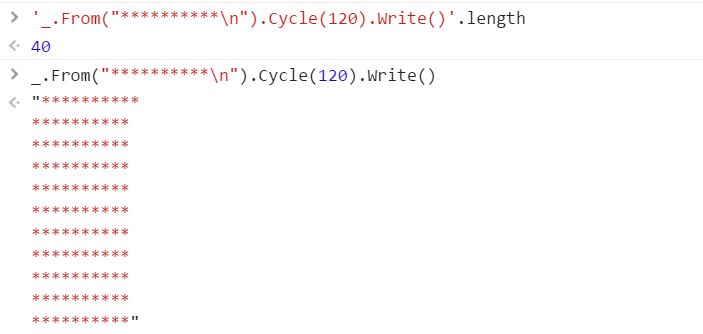Background
This is a standard textbook example to demonstrate for loops.
This is one of the first programs I learnt when I started learning programming ~10 years ago.
Task
You are to print this exact text:
**********
**********
**********
**********
**********
**********
**********
**********
**********
**********
Specs
- You may have extra trailing newlines.
- You may have extra trailing spaces (U+0020) at the end of each line, including the extra trailing newlines.
Scoring
This is code-golf. Shortest answer in bytes wins.

